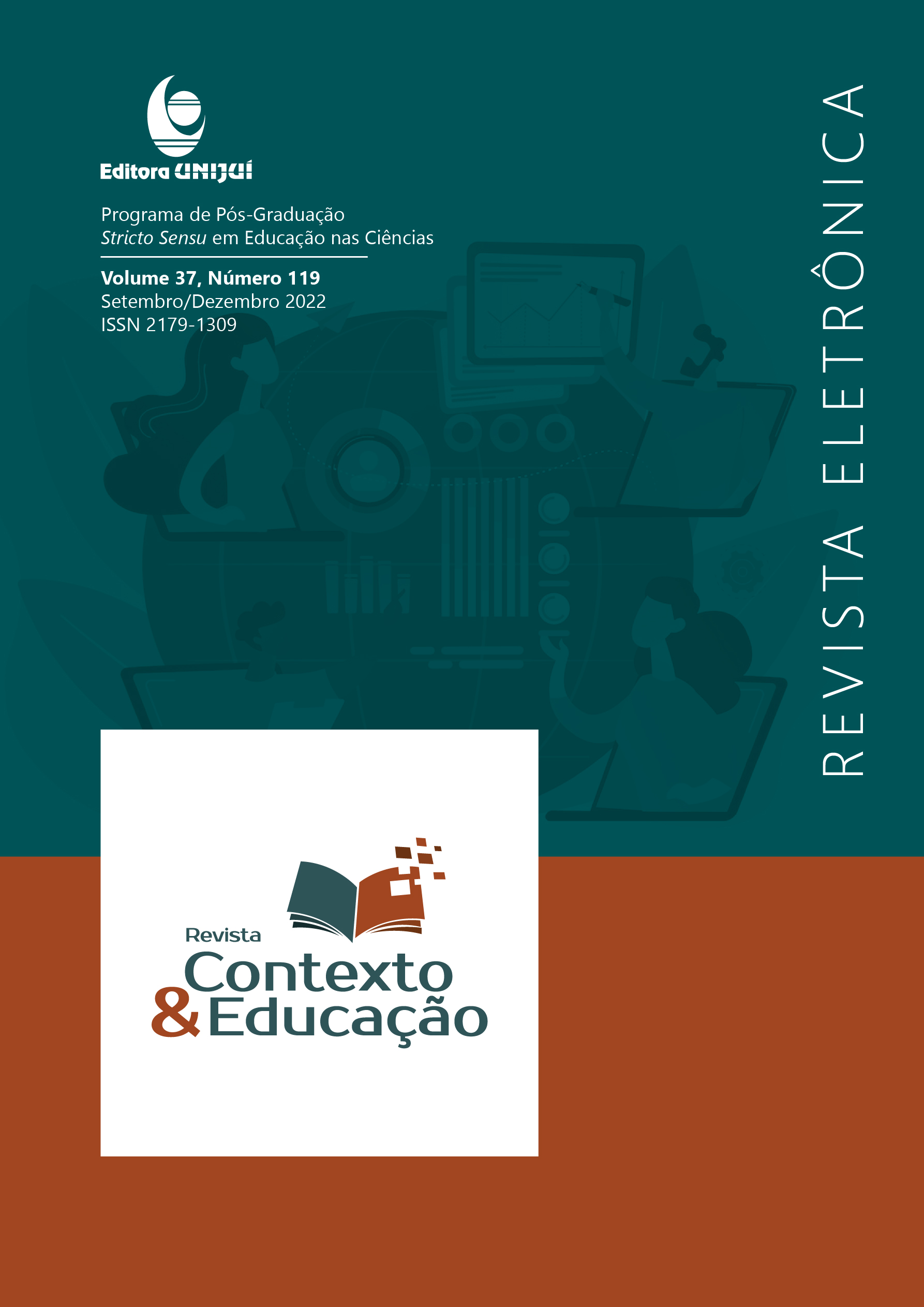Social representations about professional and technological education: a comparative study between entering and graduating students from integrated high school
DOI:
https://doi.org/10.21527/2179-1309.2022.119.13248Keywords:
Social representations, Students of Integrated High School, Professional and Technological EducationAbstract
The study aimed to analyze the social representations about Professional and Technological Education from the perspective of students entering and graduating from Integrated High School. In order to handle such an onslaught, we rely on the theoretical foundations of the EPT, on the Theory of Social Representations, by Serge Moscovici (1961) and on the Theory of the Central Nucleus, proposed by Jean-Claude Abric (1976). A total of 113 Integrated High School students participated in the study, of these, 53 freshmen and 60 graduating students. In the methodological procedures, we took as a unit of analysis the words evoked by the students from the inducing term “Professional and Technological Education”. For data analysis, we used the software Ensemble de Programs Permettant l'Analyse des Evocations (EVOC), with a qualitative-quantitative research approach. The research results show that students entering and graduating from Integrated High School have different social representations about Professional and Technological Education and at the same time not so close to what is advocated in the conceptual bases of Professional and Technological Education.
Downloads
Published
How to Cite
Issue
Section
License
Copyright (c) 2022 Revista Contexto & Educação

This work is licensed under a Creative Commons Attribution 4.0 International License.
By publishing in Revista Contexto & Educação, authors agree to the following terms:
All works are published under the Creative Commons Attribution 4.0 International License (CC BY 4.0), which allows:
Sharing — to copy and redistribute the material in any medium or format;
Adaptation — to remix, transform, and build upon the material for any purpose, even commercially.
These permissions are irrevocable, provided that the following terms are respected:
Attribution — authors must be properly credited, a link to the license must be provided, and any changes made must be indicated.
No additional restrictions — no legal or technological measures may be applied that legally restrict others from doing anything the license permits.
Notices:
The license does not apply to elements that are in the public domain or covered by legal exceptions.
The license does not grant all necessary rights for specific uses (e.g., image rights, privacy, or moral rights).
The journal is not responsible for the opinions expressed in the articles, which are the sole responsibility of the authors. The Editor, with the support of the Editorial Board, reserves the right to suggest or request modifications when necessary.
Only original scientific articles presenting research results of interest that have not been previously published or simultaneously submitted to another journal with the same purpose will be accepted.
Mentions of trademarks or specific products are intended solely for identification purposes and do not imply any promotional relationship by the authors or the journal.
License Agreement (for articles published from October 2025): Authors retain the copyright to their article and grant Revista Contexto & Educação the right of first publication.


